South Korea’s
Diplomatic Shift
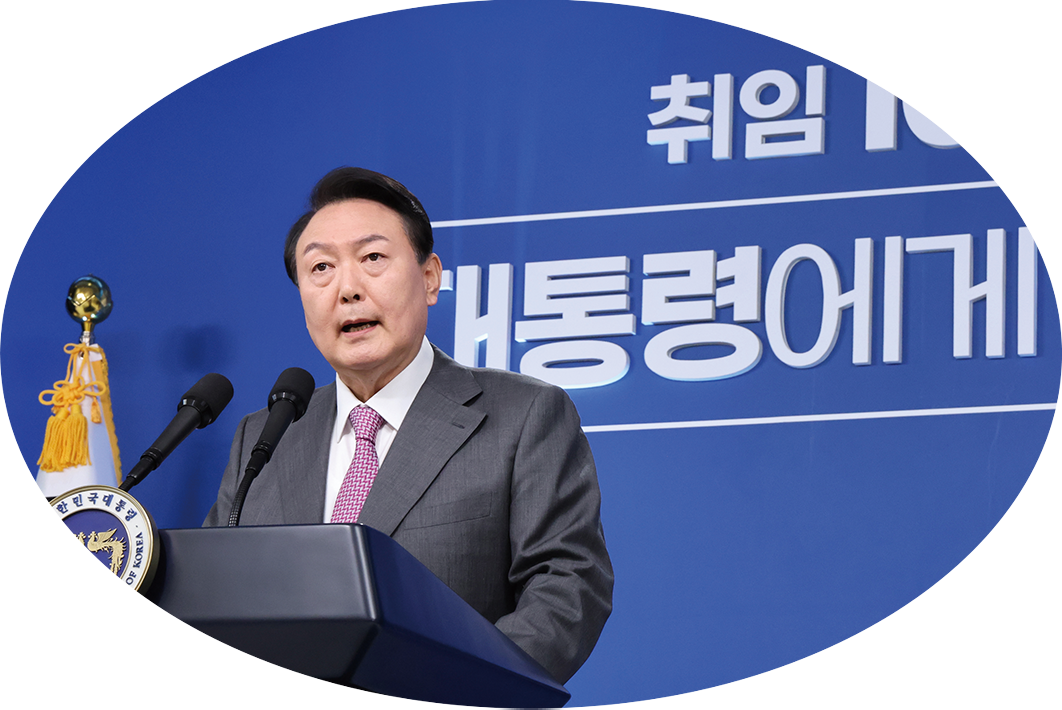
President Yoon on Aug. 17 holds a news conference at the presidential office in Yongsan-gu District on his 100th day in office. ©Yonhap News
WRITTEN BY
Sohn Ji-ae
Under the leadership of President Yoon Suk Yeol who recently marked his 100th day in office, South Korea has dramatically shifted its diplomacy towards its allies with mutual interests.
Earlier in August, South Korea, the U.S., and Japan participated in a ballistic missile defense exercise off Hawaii’s coast, reviving combined drills for the first time since 2017.
The stronger trilateral military alliance is one of the Yoon Suk Yeol administration’s key diplomatic strategies in the face of growing security threats, especially North Korean ones, on the Korean Peninsula and in Northeast Asia.
Since President Yoon took office last May, South Korean diplomacy has shifted toward swiftly reinforcing and renormalizing the bilateral alliances with the U.S. and Japan, both countries that acknowledge and are alarmed by growing security and economic threats in the region, including the North, China and Russia.
Taking office, Yoon set the tone of the nation’s new diplomacy which prioritizes building “value-based alliances with like-minded allies.” Looking for ways to balance the nation’s security alliance with the U.S. with its economic ties with China, the president decided that the nation’s relationship with China needed to be built on greater mutual respect, while he promised to draw closer to the U.S.
As the first concrete step towards a stronger alliance with the U.S., Yoon declared Seoul would formally join the U.S.- led Indo-Pacific Economic Framework (IPEF) to ensure the security of supply chains, which he believes will reduce the nation’s dependency on China in essential goods and materials to complete many of its supply chains.
‘Japan is Our Partner’
In the security realm, the stronger alliance with the U.S. helped revitalize trilateral security cooperation between South Korea, the U.S., and Japan against North Korean nuclear threats.
Yoon viewed Japan—the U.S.’ closest ally—as “a partner” for the nation to join forces with to address North Korean issues, resuming the South Korea-U.S.-Japan trilateral military exercises with the shared goal: establish the stability and security on the Korean Peninsula, in the North Asian region, and, furthermore, around the world.
Relations between Seoul and Tokyo have long been strained over ongoing historical disputes stemming from Japan’s colonial rule over South Korea, namely the compensation of forced laborers and wartime sexual slavery issues. However, Yoon has since his inauguration emphasized that the nation must overcome such historical disputes with Japan and improve bilateral ties.
“In the past, we had to unshackle ourselves from political domination imposed by Japan so that we could regain and defend our freedom. Today, Japan is our partner as we face common threats that challenge the freedom of global citizens,” Yoon said on Aug. 15 at a ceremony to mark the 1945 end of Japan’s colonial rule of the nation.
In his belief, the Seoul-Tokyo alliance will form a united front against North Korea’s threats, which will contribute to the peace, security and prosperity of the international community as a whole.
‘Audacious’ North Korea Aid
North Korea is clearly one of the biggest security tasks for South Korea and its allies. Without complete denuclearization of the North will they not be able to achieve complete peace on the peninsula, in Northeast Asia and beyond.
Yoon took office vowing to get tough on North Korea but remained willing to offer massive aid to the North—if Pyongyang stopped development of its nuclear programs and embarked on a “genuine and substantive” process of eliminating its nuclear weapons.
Along this line, Yoon recently offered an “audacious aid” for the North. “I will propose an ‘audacious initiative’ that significantly improves the North’s economy and its people’s livelihood in stages if it ceases nuclear weapons development and begins substantial denuclearization,” he announced.
Yoon’s “audacious plan” involves various programs that would be implemented in stages, including a large-scale food program, assistance for power generation, and modernization of infrastructure like ports, airports, and hospitals.
Yoon also made it clear that Seoul is ready to have dialogue with the North, though any dialogue between the two leaders should be a substantive one, not a political show, in such a way that will contribute to the actual establishment of peace in the region.
NEWS TICKER
Other Articles
-

Special Ⅰ Man-made Caves Find New Life
-

Special Ⅱ Returned to Nature
-
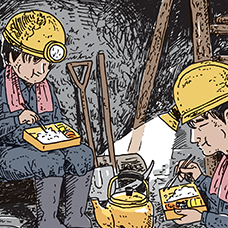
Trend Underground Dining
-

Hidden View The Highest Point
-
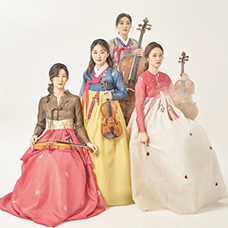
Interview Esmé Quartet
-
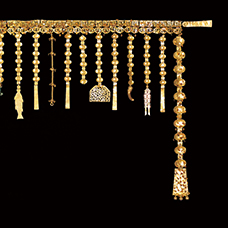
Art of Detail Heart of Gold
-
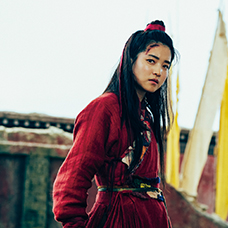
Film & TV Alienoid Part 1
-
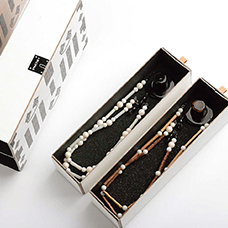
Collaboration Daily Life Embraces Korean Tradition
-
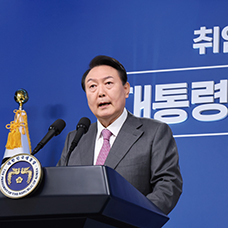
Current Korea South Korea’s Diplomatic Shift
-
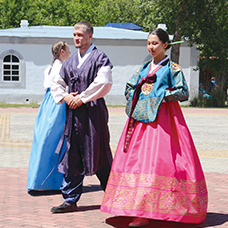
Global Korea Encountering the Beauty of Hanbok at Oskemen
